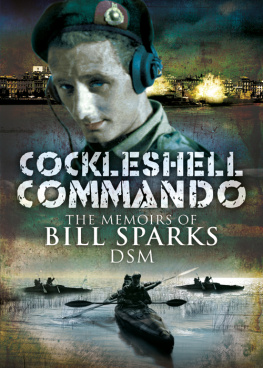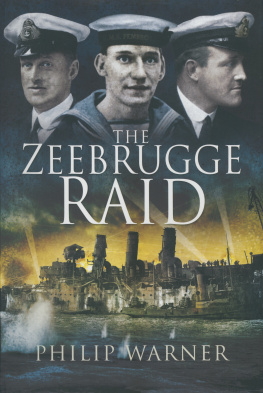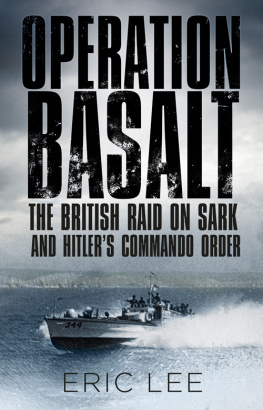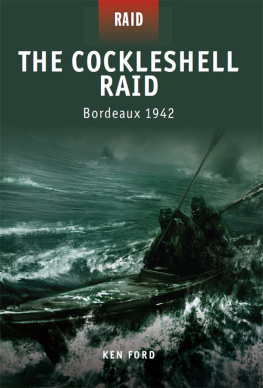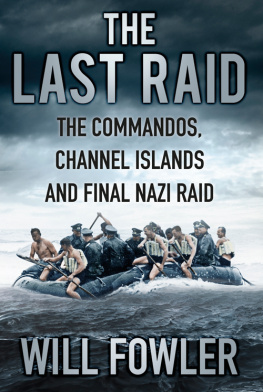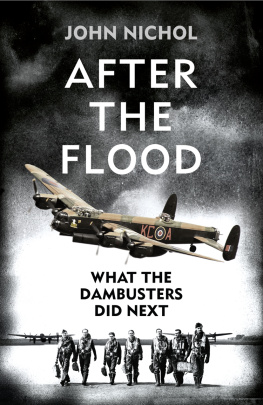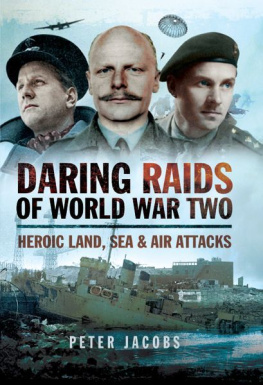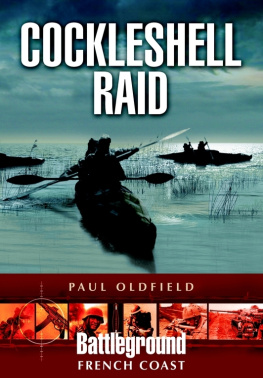by the same author
The Last of the Cockleshell Heroes
First published in Great Britain in 2002 by
LEO COOPER
an imprint of Pen & Sword Books,
47 Church Street,
Barnsley
South Yorkshire,
S70 2AS
Copyright Bill Sparks DSM
ISBN 0 85052 929 8
ISBN 9781844682263 (epub)
ISBN 9781844682270 (prc)
A CIP catalogue record for this book is
available from the British Library.
Typeset in 11/13pt Sabon by
Phoenix Typesetting, Burley-in-Wharfedale, West Yorkshire.
Printed in England by
CPI UK
With Love
to
Irene
Also with sincere gratitude to my dear friend Jim Ruston,
without whose untiring efforts and patience in transcribing
my copious notes, this book may never have reached
the publisher.
Contents
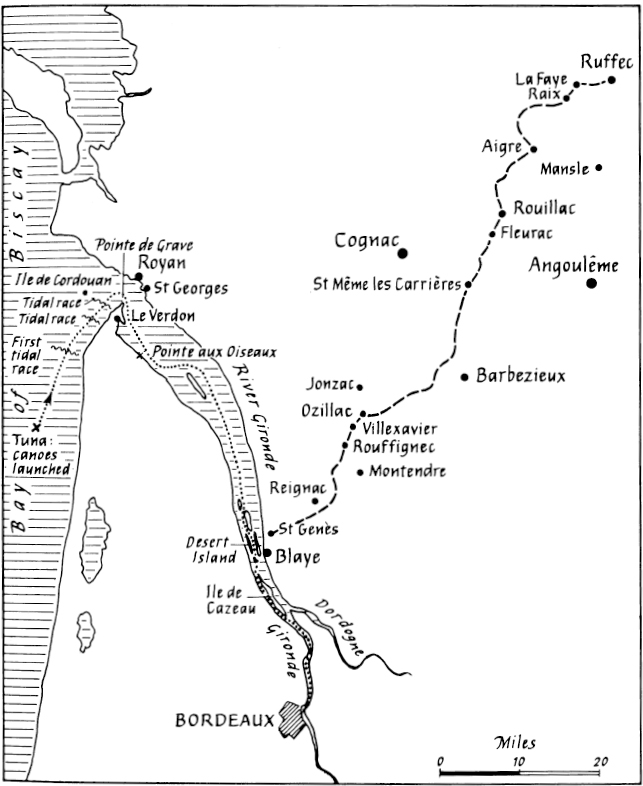
Operation Frankton
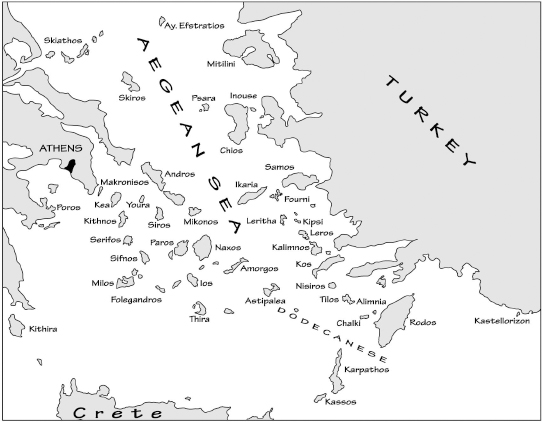
The Aegean Sea
Chapter 1
The Raid on Bordeaux
Dear Mum Dad and brothers,
I'm taking this opportunity to write you these few lines, although I hope they won't be necessary. As you know I volunteered for a certain job, which I trust you will learn about at a later period. I've enjoyed every minute of it and hope that what we have done helps to end the mess we are in and make a decent and better world. You will see by recovery [sic] note whether I am a prisoner or otherwise, which at present isn't worrying me in the least. I have a feeling I'll be like a bad penny, so please don't upset yourself over my safety. My heart will be with you always, you are the best parents one could wish to have. Anyway Mum you can always say you had a son in the most senior service, and, though I say it myself, one of twelve heroes.
These moving words were written by Jock Ewart in a letter to his parents as we sat on board our hotel ship Al Rawdah in the Clyde. There had not been room for us on the depot ship, so we had been accommodated on this old tug. The evening before we were to embark upon an exercise of a secret nature, it was suggested we write a letter home. The twelve marines in the party were Major Blondie Hasler, Lieutenant Mackinnon, Sergeant Mick Wallace, Corporals Laver and Sheard, and Marines Conway, Mills, Moffat, Fisher, Ellery, Ewart and me Bill Sparks also known to my shipmates as Ned.
For the previous three months we had been training extensively for an operation of a particularly hazardous nature. Our training indicated that it had something to do with blowing up ships, but just when and where remained pure speculation. Now, it was rumoured, we were about to find out.
At first light on 30 November 1942 our six canoes with their respective names Catfish, Coalfish, Cuttlefish, Crayfish, Conger and Cachalot painted in small letters on their bows, were loaded aboard the submarine Tuna, which was moored alongside the depot ship HMS Forth. Reunited with our canoes, and in true Royal fashion, following big ship tradition, as Tuna slipped her moorings, we stood to attention on the after casing, as the submarine saluted her depot ship. Carry On, shrilled out from the bo's'n's pipe, and we were dismissed and sent below, as the submarine glided down the Firth of Clyde, heading for open waters.
Now that the hatches had been closed and the ship was underway, Major Hasler called us all together. He had erected a blackboard in the forward torpedo space amongst our folded canoes and stores, and as we squatted close together he spoke. Right lads. This is it. The real thing. He then drew a map of the Gironde estuary on the blackboard. As he did so, he explained that we were to be launched from our submarine under cover of darkness, at a place about ten miles from the headland named Pointe de Grave. From there we would paddle our canoes on a bearing that would take us to the mouth of the Gironde and then paddle a further sixty miles to Bordeaux where we were to do some business. The raid, Major Hasler informed us, had a codename Operation Frankton.
Well, I for one was completely taken by surprise. I had thought, as did the rest I suppose, that we were going after the German battleship Tirpitz, which was lying off the coast of Norway. Major Hasler continued to brief us on the job in hand. We were to paddle by night and lie up during the hours of daylight. The banks of the river were mostly covered in heavy reeds, ideal for concealment. But where there are reeds there is usually a lot of soft mud. This would have to be negotiated both when lying-up and again when re-launching both times in total darkness.
There would also be another hazard, the Enemy! The defences were quite formidable. Apart from shore batteries, there were two armed trawlers on permanent patrol, six minesweepers, up to twelve torpedo boats plus another twelve patrol boats. Enemy U-boats could also be operating in the area. Besides all this there was the danger of being spotted from the air the Germans had aerodromes at Bordeaux, Hourtain and Royan. A further threat of detection could come from the searchlight battery at Pointe de la Negade, to which we would have to pass very close. With a steely look in his eyes Major Hasler said, So you will all have to keep your eyes and ears peeled, and in daylight lie as low as possible. He then continued to inform us that the point of the raid was to sink up to twelve merchant ships in the Bassens-Bordeaux area if possible, by placing magnetic limpet mines below the waterline on the stern and bow of the ships. Now it all became clear. During the past few weeks in Scotland we had done little else except to practice attacks on shipping in this very way.
Hasler looked around us then asked, Any questions so far? Mick Wallace voiced the question that I am sure was on everyone's mind it was definitely uppermost in mine. How do we get back sir? I was coming to that next, the officer answered. We must all appreciate that we cannot expect the submarine to come back to collect us, it will be at the very least eight days before we could possibly rendezvous with her, and our navigation isn't anything like good enough to make contact with her in the dark at sea. Plus of course, once our limpets have gone off there will be quite a few people looking for us! For this reason we will make our escape overland. After the attack we will paddle back down the estuary on the ebb tide, independently, getting as far as possible from Bordeaux as we can. Then land at low water, scuttle our boats, and make our escape through Spain and back to the UK. Each of you will have a specially prepared escape kit containing a map of your objectives, and the French resistance have been alerted to look out for us.
Well you could have knocked me down with a feather. Yes, I was keen to have a crack at the enemy, but I hadn't bargained for this challenge. Looking about me I exchanged a few nervous grins with the others. We were not in any way prepared for this one; no one had mentioned the likelihood of it. After a few minutes it began to sink in, and a feeling of in for a penny, in for a pound swept over me. Someone broke the ice with, How will we manage with the language sir. I can't speak a word of French? Ah well during the next couple of nights we shall have to swot up on a few phrases.
During the first two days as Tuna proceeded down the Irish Sea and Bristol Channel a Force 4 wind was blowing causing the submarine to roll and making many of the men seasick. Thereafter we dived during daylight, coming to the surface at night to recharge the batteries and enjoy a most welcome intake of fresh air. It takes a while to get used to the claustrophobic conditions experienced in a submarine. Some never get used to it; and the feeling of nausea is exacerbated by the ever-lingering smell of diesel oil.
Next page
